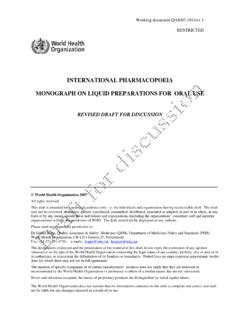Transcription of 18 March 2016, Strasbourg, France European …
1 18 March 2016, Strasbourg, France European pharmacopoeia commission adopts revised monograph on Water for Injections allowing production by non-distillation technologies During its 154th Session held in Strasbourg on 15-16 March 2016, the European Pharmacopeia (Ph. Eur.) commission adopted a revision of its monograph for Water for Injections (0169). Up to now, the production of Water for Injections (WFI) had been limited to distillation only. The revision allows for production of WFI by a purification process equivalent to distillation such as reverse osmosis, coupled with appropriate techniques.
2 The revised monograph also states that the use of non-distillation technologies for the production of WFI requires that notice is given to the supervisory authority of the manufacturer before implementation. The monograph revision is the result of extensive consultations with stakeholders. It is based on the outcome of a survey conducted by the EDQM in March 2010 to gather data on the use of non-distillation technologies for producing WFI and of an EDQM expert workshop on Water for Injections - Potential Use of Membrane Systems for the Production organised in March 2011.
3 It brings the Ph. Eur. more closely in line with the US Pharmacopeia and the Japanese pharmacopoeia which allow for production of WFI by distillation or a purification process proven being equal or superior to distillation, and by distillation or reverse osmosis followed by ultrafiltration, respectively. Any non-distillation technology for producing WFI should be equivalent in quality to that produced by distillation, where equivalence in quality does not simply mean compliance with a specification but also takes into account the robustness of the production method.
4 This is why the ongoing general revision of Annex 1 Manufacture of sterile medicinal products to the EU Good Manufacturing Practice (GMP) guidelines will include new guidance on production methods for WFI. In order to ensure the necessary guidance will be available at the time when the revised WFI monograph will come into force, a Q&A document is currently being finalised by the GMP/GMDP Inspectors Working Group of the European Medicines Agency. The revised monograph for Water for Injections (0169) will be published in the Ph.
5 Eur. Supplement and will become effective in April 2017. Additional Information: Reverse Osmosis in Ph. Eur. Monograph for Water for Injections, EDQM Webinar, 22 April 2015 Contact: Caroline Larsen Le Tarnec, Public Relations Division, EDQM, Council of Europe Tel.: +33 (0)3 88 41 28 15 - E-mail: Note for the Editor: Further information is available on the internet site The EDQM is a leading organisation that protects public health by enabling development, supporting implementation, and monitoring the application of quality standards for safe medicines and their safe use.
6 Our standards are recognised as a scientific benchmark world-wide. The European Pharmacopeia is legally-binding in Member States1. Similarly, the EDQM develops guidance and standards in the areas of blood transfusion, organ transplantation and consumer health issues. 1 There are thirty-eight members of the European pharmacopoeia commission : Austria, Belgium, Bosnia and Herzegovina, Bulgaria, Croatia, Cyprus, Czech Republic, Denmark, Estonia, Finland, France , Germany, Greece, Hungary, Iceland, Ireland, Italy, Latvia, Lithuania, Luxembourg, Malta, Montenegro, Netherlands, Norway, Poland, Portugal, Romania, Serbia, Slovak Republic, Slovenia, Spain, Sweden, Switzerland, the Former Yugoslav Republic of Macedonia, Turkey, Ukraine, United Kingdom and the European Union.
7 A political organisation set up in 1949, the Council of Europe works to promote democracy and human rights continent-wide. It also develops common responses to social, cultural and legal challenges in its 47 member states.
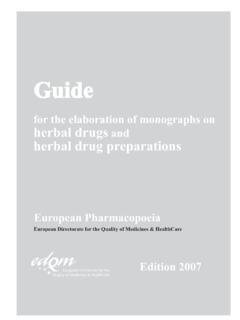

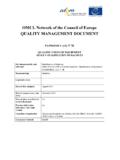
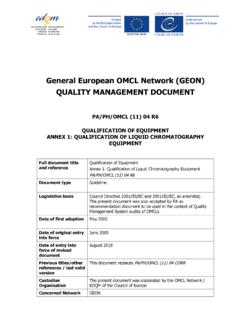
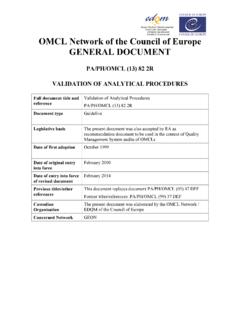
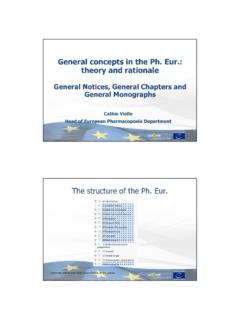
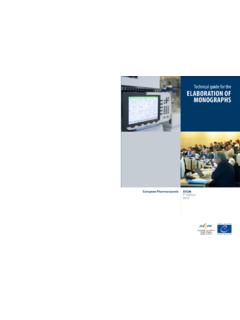
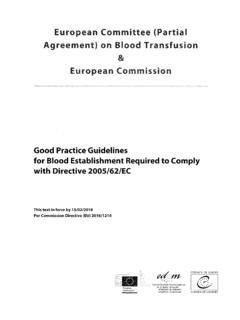

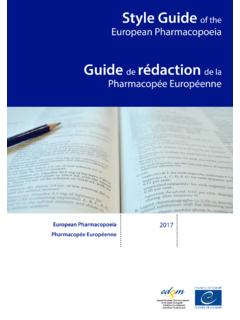

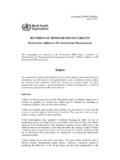
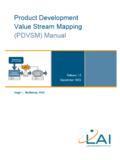
![[Product Monograph Template - Schedule D]](/cache/preview/b/f/c/5/9/9/f/5/thumb-bfc599f58969b8bff3fb0f7d9d95ed1e.jpg)

